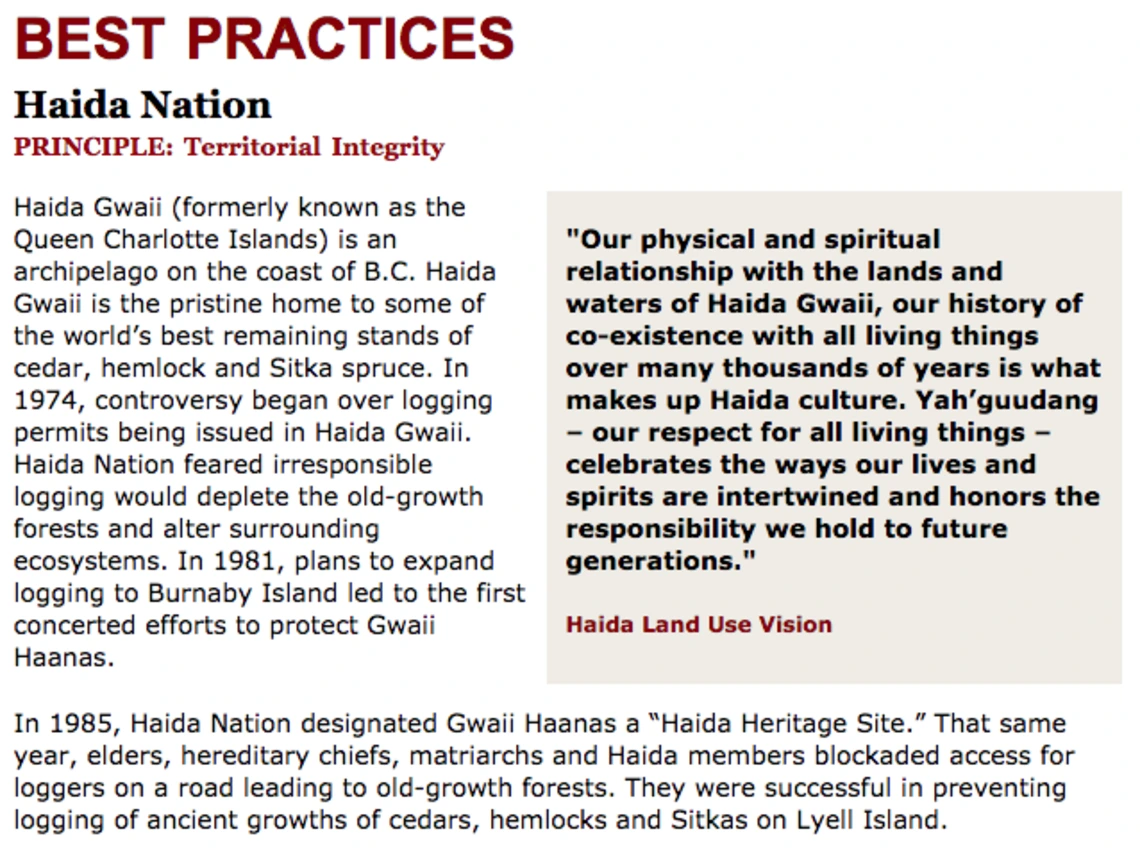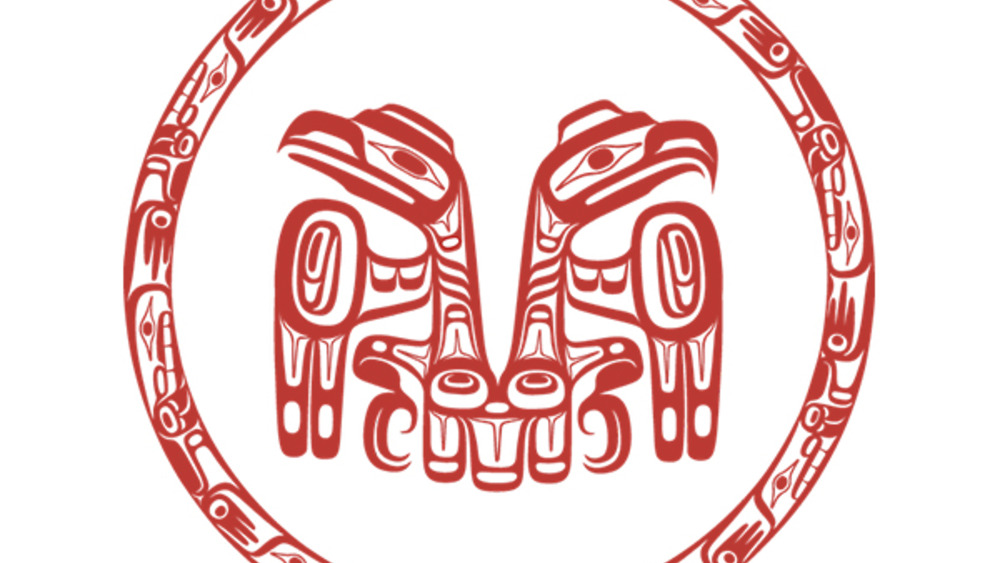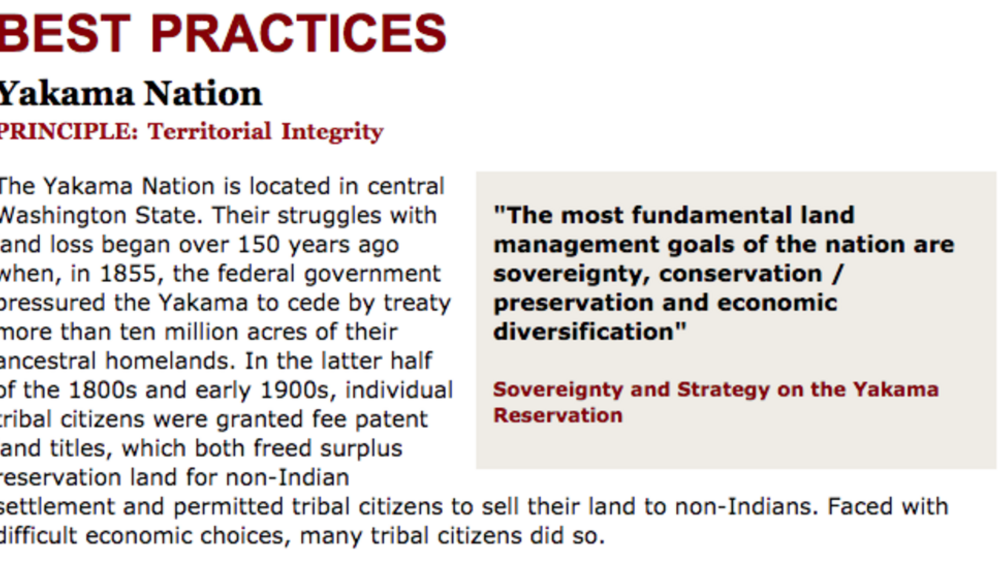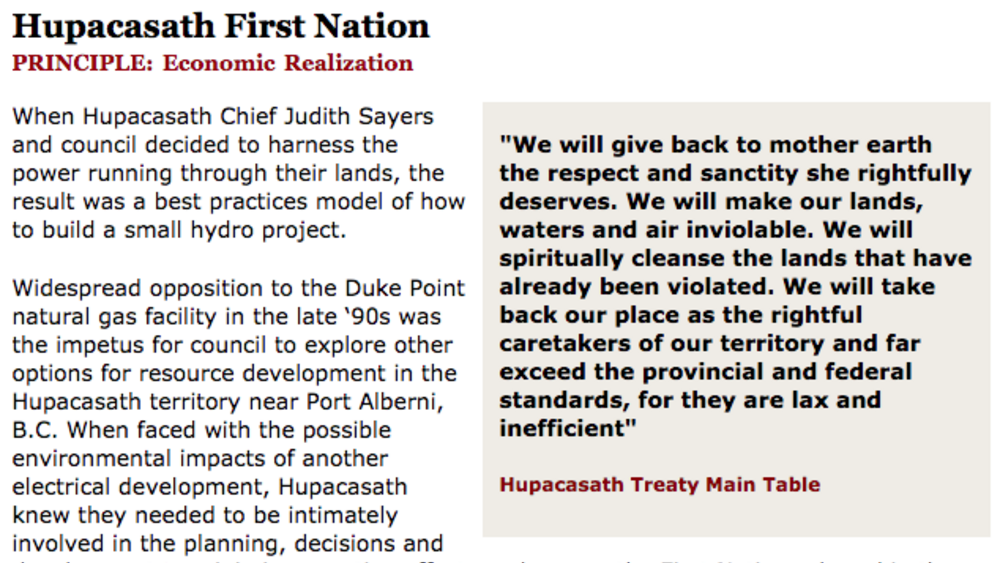Haida Gwaii (formerly known as the Queen Charlotte Islands) is an archipelago on the coast of B.C. Haida Gwaii is the pristine home to some of the world's best remaining stands of cedar, hemlock and Sitka spruce. In 1974, controversy began over logging permits being issued in Haida Gwaii. Haida Nation feared irresponsible logging would deplete the old-growth forests and alter surrounding ecosystems. In 1981, plans to expand logging to Burnaby Island led to the first concerted efforts to protect Gwaii Haanas...
Additional Information
National Centre for First Nations Governance. "Best Practices Case Study (Territorial Integrity): Haida Nation." A Report for the National Centre for First Nations Governance. The National Centre for First Nations Governance. Canada. June 2009. Case Study. (https://fngovernance.org/wp-content/uploads/2020/06/TI_Haida.pdf, accessed March 8, 2023)




